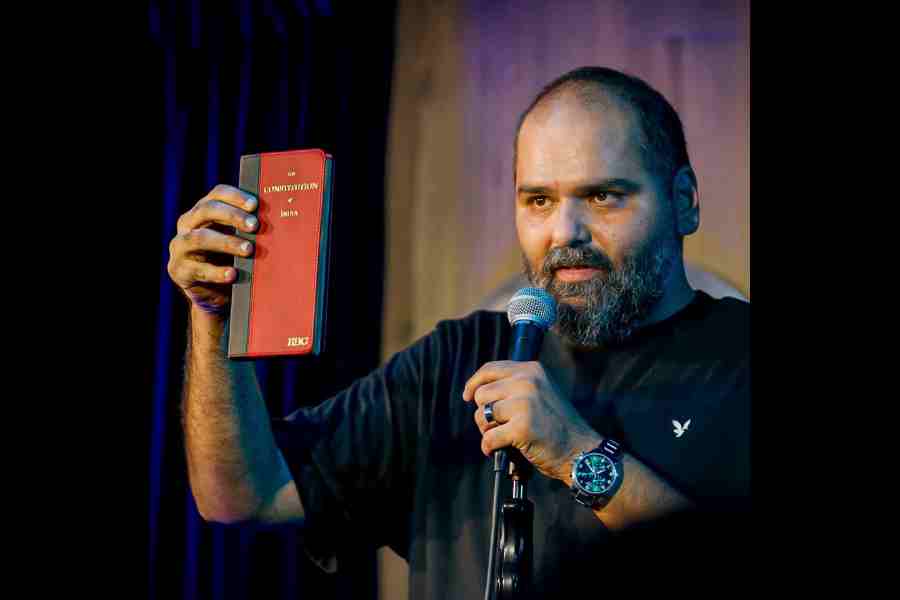That Indians are peculiarly thin-skinned has been proved on a number of occasions. But the dubious honour of possessing the prickliest of skins must go to the Indian politician. The politically orchestrated, violent response to the biting humour of the comedian, Kunal Kamra, bears evidence, once again, of the politicians’ intolerance of and adversity towards satire, especially the kind of humour that comes too close to the bone. Among Mr Kamra’s ostensible targets — none of whom was named — in a video of his stand-up comedy show, Naya Bharat, at The Habitat in Mumbai, was the Maharashtra deputy-chief minister, Eknath Shinde: he was referred to as a “traitor” for his role in splitting the Shiv Sena. Investigative agencies, such as the Enforcement Directorate and the Central Bureau of Investigation, along with the prime minister were also made fun of. The politician responded through violence. Cadres from Mr Shinde’s faction of the Shiv Sena vandalised the premises of The Habitat. The police have also booked Mr Kamra on charges of public mischief, a notoriously vague concept that is vulnerable to mischief from the powers that be, and defamation. Politicians, as is their wont, have jumped into the fray. The Maharashtra chief minister, Devendra Fadnavis, has been critical of the standards of Mr Kamra’s comedy. His opponent, Uddhav Thackeray, the leader of the Shiv Sena (UBT), has sided with Mr Kamra. Would Mr Thackeray, citizens with their funny bone intact have the right to wonder, have done the same if the joke was on him?
This episode lays bare one sorry fact: Indian democracy’s tryst with freedom of speech remains inconclusive. Article 19 (1) (a) of the Constitution vests all citizens with the right to freedom of speech and expression. The Supreme Court has also repeatedly pushed back against attempts on the part of the State to encroach upon this precious constitutional provision. It is equally true that this right is not absolute; it comes with reasonable restrictions pertaining to the grounds of decency, morality, security and so on. In light of events, such as the one that unfolded in Mumbai, it must be asked whether these restraints are being adhered to by the State in their rightful spirit. This is because the weaponisation of the restraints on the freedom of expression by India’s political fraternity has led, quite often, to the choking of criticism, be it satirical or in the form of dissent. The minders of a mature democracy should be able to laugh at themselves. That is not the case in India where the right to free expression remains a work in progress.










